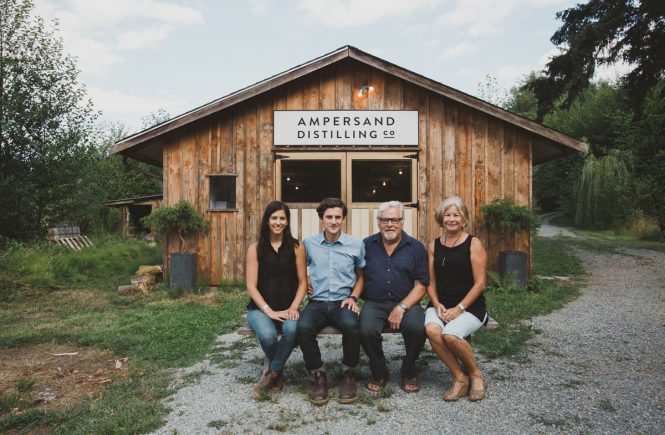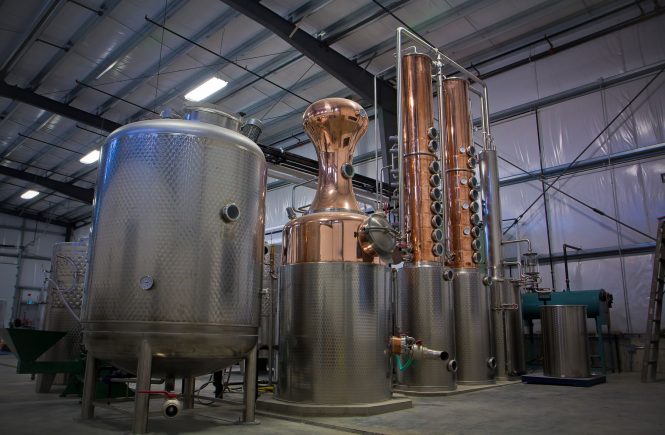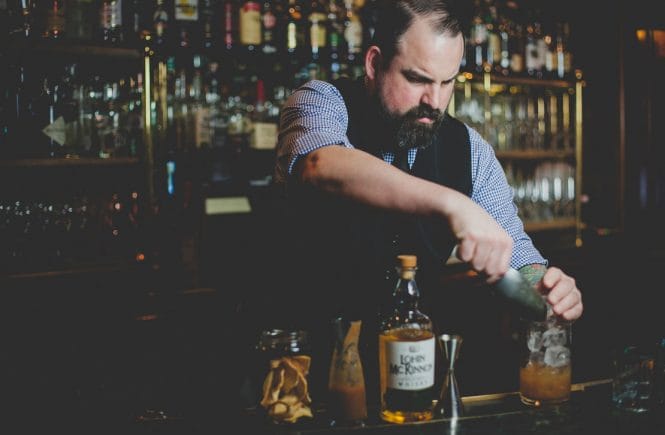Brewer-distillers have unique advantages over their still-only colleagues
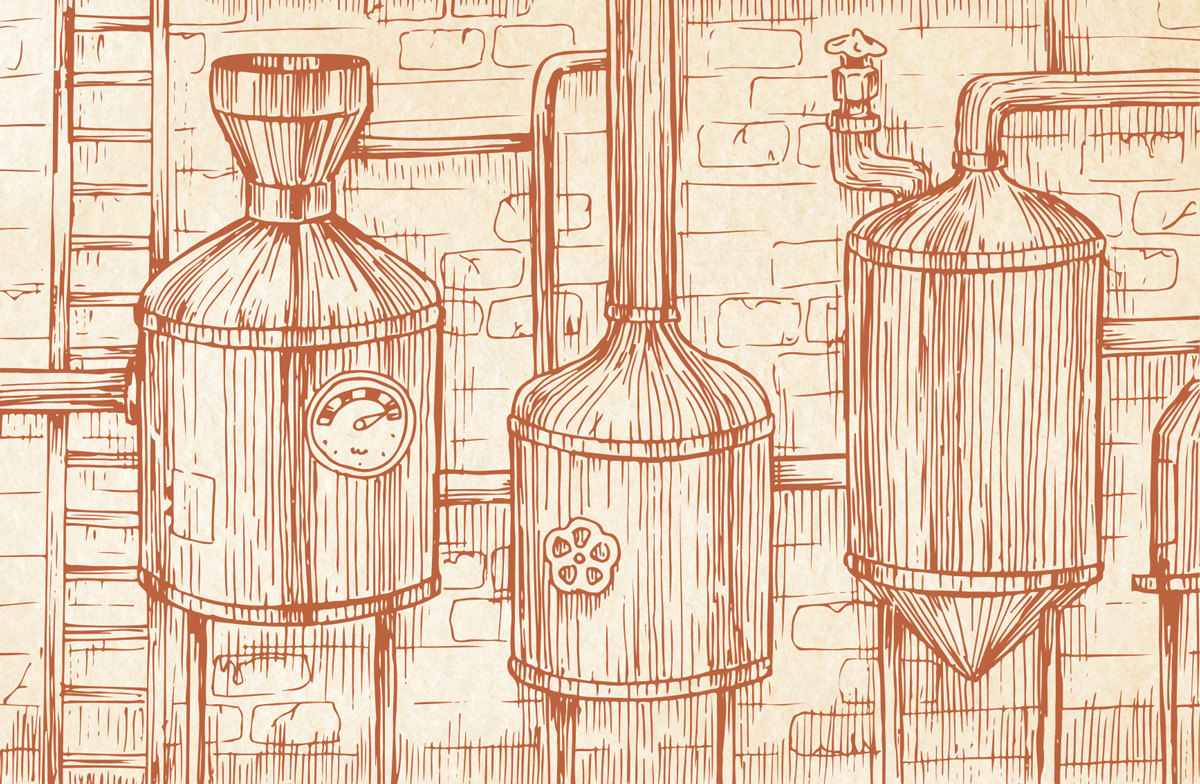
Early visitors to Yaletown Distillery on Vancouver’s Hamilton Street may have tripped to—or rather, over—its connection to Yaletown Brewing, a block away. Originally, the fermented base for the spirits came through a hose in the sidewalk. “The wash comes through this pipe now,” says brewer-distiller Tariq Khan, pointing toward the ceiling.
That supply chain of fermented-grain wash is a key advantage of local businesses that make both beer and spirits, including relative newbies The 101 Brewhouse + Distillery in Gibsons and Moon Under Water in Victoria, as well as veterans like Deep Cove Brewers and Distillers in North Vancouver. Brewing on site guarantees a pipeline to so-called distiller’s beer, the essential raw material for making spirits.
“Making beer and whisky—and antibiotics or human growth hormone—is fundamentally the same process,” says chemical engineer and fermentation scientist Graeme Macaloney. He’s the founder of Victoria Caledonian Spirits and Twa Dogs Brewery, where highly popular tours give a taste of how beer and spirits production intertwine. Macaloney is deeply invested in making fine whisky. “That’s why we went to craft beer,” he says: It not only feeds the distillery, but goes to market in weeks or months instead of whisky’s long barrel-aging years.
It’s not just access to wash, but what goes into it, such as different yeasts, that sets brewer-distillers apart. “There’s lots of complication for brewers in the mash bill,” says Macaloney.
In Whitehorse, Two Brewers Whisky’s Bob Baxter proudly named his distillery for his and co-founder Alan Hansen’s Yukon Brewing expertise. Baxter explains that many large distilleries start with highly refined cereal alcohol. “It is not at all a nuanced approach to mash bills…this is not to be critical, but rather to point out the huge gap between [large Canadian whisky makers] and what we and other small producers are doing.”
At Central City Brewers & Distillers in Surrey, Gary Lohin is a brewer in a candy store, working with distiller Stuart McKinnon using “the same passion and experimentation that we do with our beer, and applying it to our distillation.” Gesturing to a brewery lined with grain sacks and casks from around the globe, he says, “We’re playing around with different types and colours of barley, different toasting levels, different barrels.”
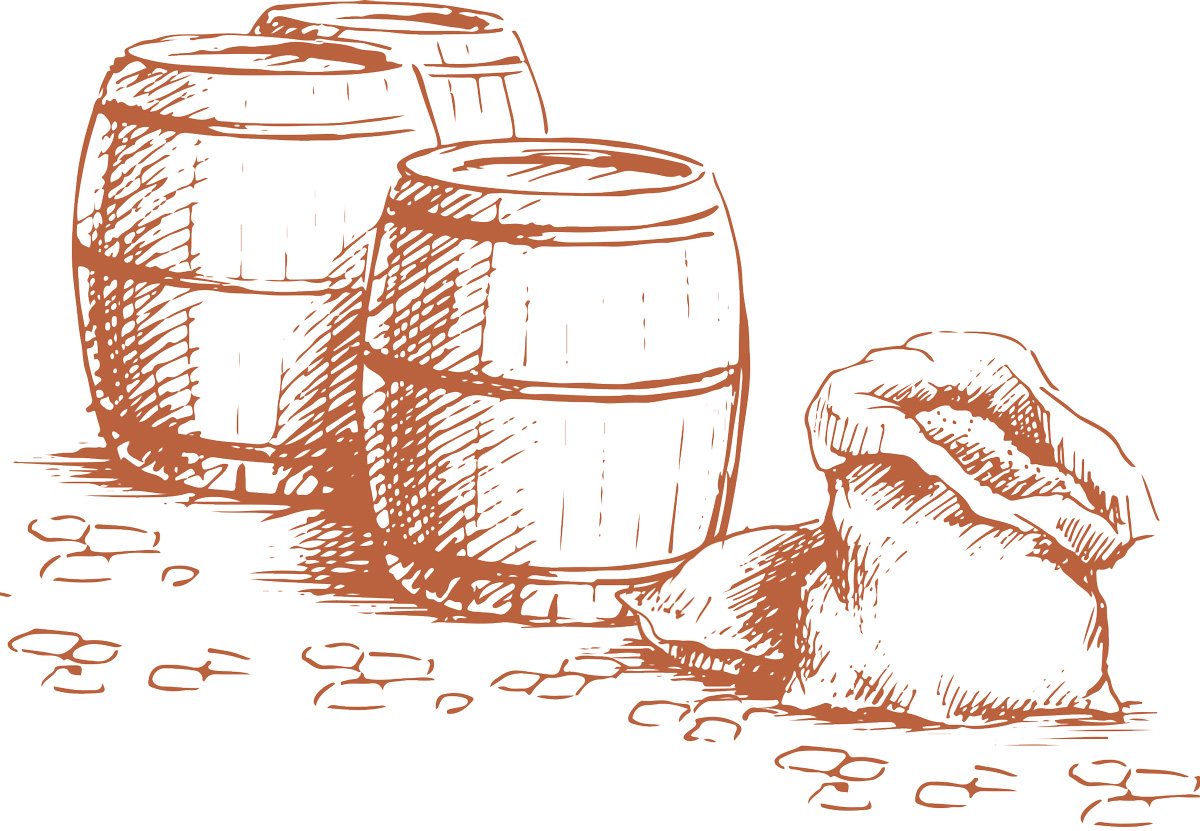 Smaller distillers tend to work with the same few malts from a couple of local suppliers. “It’s like saying to a baker, you can only use white flour,” says Lohin. Local businesses like Phillips Brewing & Malting in Victoria are busting that limitation with an in-house malting plant that supplies its in-house distillery, plus a few lucky others.
Smaller distillers tend to work with the same few malts from a couple of local suppliers. “It’s like saying to a baker, you can only use white flour,” says Lohin. Local businesses like Phillips Brewing & Malting in Victoria are busting that limitation with an in-house malting plant that supplies its in-house distillery, plus a few lucky others.
A natural fluency with barrel-aging helps G&W head distiller Alastair Lindsay, who, like many distillers, is a former brewer—he pioneered the cask-aging program at Stanley Park. Companies like Scotland’s Innis & Gunn have built entire brands around aging beer in spirits barrels, a collaboration that could come naturally to B.C.’s brewer-distillers.
Lindsay believes craft spirits need to do “the same thing craft beer did,” converting existing beer drinkers to something local and small-batch. “They’ll pay a little bit more for quality. They’ll pay a little bit more for reduced yields.” The case for B.C.’s growing brewer-distiller sector depends on it.


